Acezon 325mg/250mg Tablet
MRP ₹30.28
(Inclusive of all Taxes)
₹4.5 Cashback (15%)
Provide Delivery Location
Online payment accepted
 Prescription drug
Prescription drugWhats That
Composition :
Manufacturer/Marketer :
Consume Type :
Return Policy :
About Acezon 325mg/250mg Tablet
Acezon 325mg/250mg Tablet belongs to the class of drugs known as analgesics and muscle relaxants. It is primarily indicated for the relief of severe skeletal muscle spasms associated with painful conditions such as low back pain, sprain, strain, myalgia (muscle pain), headache, traumatic muscle injuries, cervical root and disc syndrome, torticollis (neck muscle contractions), and fibrositis (pain and inflammation of muscles). Muscle spasms are involuntary contractions of muscle which can be painful.
Acezon 325mg/250mg Tablet is a combination of two drugs: Paracetamol (Analgesic) and Chlorzoxazone (Muscle relaxant). Paracetamol works by inhibiting the synthesis of prostaglandins which are responsible for pain and inflammation. Chlorzoxazone acts on the brain and spinal cord centres where it inhibits multisynaptic reflex involved in muscle spasms, thereby providing relief from skeletal muscle spasms. Together, Acezon 325mg/250mg Tablet helps in relieving musculoskeletal pain.
You are advised to take Acezon 325mg/250mg Tablet for as long as your doctor has prescribed it for you, depending on your medical condition. In some cases, you may experience certain common side-effects such as gastrointestinal disturbances, nausea, dizziness, drowsiness, weakness, and light-headedness. Most of these side-effects do not require medical attention and will resolve gradually over time. However, you are advised to talk to your doctor if you experience these side-effects persistently.
Acezon 325mg/250mg Tablet contains paracetamol, do not take any other medicines containing paracetamol along with Acezon 325mg/250mg Tablet unless prescribed. Consult your doctor if you are pregnant or breastfeeding. Acezon 325mg/250mg Tablet is not recommended for children as safety has not been established. Avoid consuming alcohol along with Acezon 325mg/250mg Tablet as it could increase the risk of stomach bleeding. Acezon 325mg/250mg Tablet may cause drowsiness and dizziness, so drive only if you are alert. Keep your doctor informed about your health condition and medicines to rule out any side-effects/interactions.
Uses of Acezon 325mg/250mg Tablet
Directions for Use
Key Benefits
Acezon 325mg/250mg Tablet is a combination of two drugs, namely: Paracetamol and Chlorzoxazone. Acezon 325mg/250mg Tablet is used to relieve pain and stiffness caused by muscle strains and sprains. Acezon 325mg/250mg Tablet is indicated for the relief of severe skeletal muscle spasms associated with painful conditions such as low back pain, sprains, strains, myalgia (muscle pain), headache, traumatic muscle injuries, cervical root and disc syndrome, torticollis (neck muscle contractions), and fibrositis (pain and inflammation of muscles). Paracetamol is an analgesic that inhibits prostaglandin synthesis, responsible for pain and inflammation. Chlorzoxazone is a muscle relaxant that acts on the brain and spinal cord centres, where it inhibits the multisynaptic reflex involved in muscle spasms, thereby providing relief from skeletal muscle spasms. Together, Acezon 325mg/250mg Tablet helps in relieving pain due to muscle spasms.
Storage
- Inform your doctor about the nausea and discuss possible alternatives to the medication or adjustments to the dosage.
- Divide your daily food intake into smaller, more frequent meals to reduce nausea.
- Opt for bland, easily digestible foods like crackers, toast, plain rice, bananas, and applesauce.
- Avoid certain foods that can trigger nausea, such as fatty, greasy, spicy, and smelly foods.
- Drink plenty of fluids, such as water, clear broth, or electrolyte-rich beverages like coconut water or sports drinks.
- Use ginger (tea, ale, or candies) to help relieve nausea.
- Get adequate rest and also avoid strenuous activities that can worsen nausea.
- Talk to your doctor about taking anti-nausea medication if your nausea is severe.
- Record when your nausea occurs, what triggers it, and what provides relief to help you identify patterns and manage your symptoms more effectively.
- Preventing Vomiting (Before it Happens)
- Take medication exactly as prescribed by your doctor. This can help minimize side effects, including vomiting.
- Having a small meal before taking your medication can help reduce nausea and vomiting.
- Talk to your doctor about taking anti-nausea medication along with your prescribed medication.
- Managing Vomiting (If it Happens)
- Try taking ginger in the form of tea, ale, or candy to help alleviate nausea and vomiting.
- What to Do if Vomiting Persists
- Consult your doctor if vomiting continues or worsens, consult the doctor for guidance on adjusting your medication or additional treatment.
- Inform Your Doctor: Notify your doctor immediately about your diarrhoea symptoms. This allows them to adjust your medication or provide guidance on managing side effects.
- Stay Hydrated: Drink plenty of fluids to replace lost water and electrolytes. Choose water, clear broth, and electrolyte-rich drinks. Avoid carbonated or caffeinated beverages to effectively rehydrate your body.
- Follow a Bland Diet: Eat easy-to-digest foods to help firm up your stool and settle your stomach. Try incorporating bananas, rice, applesauce, toast, plain crackers, and boiled vegetables into your diet.
- Avoid Trigger Foods: Steer clear of foods that can worsen diarrhoea, such as spicy, fatty, or greasy foods, high-fibre foods, and dairy products (especially if you're lactose intolerant).
- Practice Good Hygiene: Maintain good hygiene to prevent the spread of infection. To stay healthy, wash your hands frequently, clean and disinfect surfaces regularly, and avoid exchanging personal belongings with others.
- Take Anti-Diarrheal Medications: If your doctor advises, anti-diarrheal medications such as loperamide might help manage diarrhoea symptoms. Always follow your doctor's directions.
- Keep track of your diarrhoea symptoms. If they don't get better or worse or are accompanied by severe stomach pain, blood, or dehydration signs (like extreme thirst or dark urine), seek medical help.
- Take medications with food (if recommended): It can help prevent stomach distress and indigestion.
- Eat smaller, more frequent meals: Divide daily food intake into smaller, more frequent meals to ease digestion.
- Avoid trigger foods: Identify and avoid foods that trigger indigestion, such as spicy, fatty, or acidic foods.
- Stay upright after eating: Sit or stand upright for at least 1-2 hours after eating to prevent stomach acid from flowing into the oesophagus.
- Avoid carbonated drinks: Avoid drinking carbonated beverages, such as soda or beer, which can worsen indigestion.
- Manage stress: To alleviate indigestion, engage in stress-reducing activities like deep breathing exercises or meditation.
- Consult a doctor if needed: If indigestion worsens or persists, consult a healthcare professional to adjust the medication regimen or explore alternative treatments.
- Drink water or other clear fluids.
- To prevent worsening of pain, limit intake of tea, coffee, or alcohol.
- Include bland foods like rice, toast, crackers, and rice in your diet.
- Avoid lying down immediately after eating as it may cause indigestion or heartburn.
- Avoid acidic and spicy food as it may cause indigestion.
- Tell your doctor about your GAS symptoms. They may change your medication regimen or prescribe additional drugs to help you manage them.
- To manage GAS symptoms, eat a balanced diet of fibre, vegetables, and fruits.
- Drink enough water throughout the day to avoid constipation and treat GAS symptoms.
- Regular exercise like yoga and walking may help stimulate digestion and alleviate GAS symptoms.
- Take probiotics only if your doctor advises, as they may help alleviate GAS symptoms by promoting gut health.
- Take medication for GAS symptoms only if your doctor advises, as certain medications can interact with your existing prescriptions or worsen symptoms.
- If symptoms persist, worsen, or are accompanied by severe abdominal pain, vomiting, or bleeding, seek immediate medical attention.
Drug Warnings
Do not take Acezon 325mg/250mg Tablet if you are allergic to any of its contents. Acezon 325mg/250mg Tablet contains paracetamol, do not take any other products containing paracetamol along with Acezon 325mg/250mg Tablet. Inform your doctor before taking Acezon 325mg/250mg Tablet if you have heart, kidney or liver impairment. Consult your doctor if you are pregnant or breastfeeding. Acezon 325mg/250mg Tablet is not recommended for children as safety and efficacy have not been established. Avoid consuming alcohol along with Acezon 325mg/250mg Tablet as it may cause increased dizziness and can also increase the risk of stomach bleeding. Acezon 325mg/250mg Tablet may cause drowsiness and dizziness, so drive only if you are alert. Stop taking Acezon 325mg/250mg Tablet and consult your doctor immediately if you have stomach pain or any signs of bleeding in the intestine or stomach, such as blood in stools. Do not take any other NSAIDs for pain relief along with Acezon 325mg/250mg Tablet unless prescribed.
Drug-Drug Interactions
Drug-Drug Interactions
Login/Sign Up
Using Morphine together with Acezon 325mg/250mg Tablet can cause central nervous system depression (a physiological state that can result in a decreased rate of breathing, decreased heart rate, and loss of consciousness).
How to manage the interaction:
Co-administration of Morphine with Acezon 325mg/250mg Tablet can result in an interaction, but it can be taken if a doctor has advised it. However, if you experience any symptoms like trouble breathing, feeling tired, or having a cough, dizziness, drowsiness, difficulty concentrating, impaired judgment, reaction speed, and motor coordination, make sure to contact a doctor immediately. Do not stop using any medications without consulting a doctor.
Taking Tapentadol with Acezon 325mg/250mg Tablet can increase the risk or severity of side effects like decreased breathing rate, irregular heart rhythms, or problems with movement and memory.
How to manage the interaction:
Taking Acezon 325mg/250mg Tablet with Tapentadol can result in an interaction, it can be taken if your doctor has advised it. Contact a doctor immediately if you experience signs such as drowsiness, lightheadedness, palpitations, confusion, severe weakness, or difficulty breathing. Do not discontinue any medications without consulting a doctor.
Co-administration of Acezon 325mg/250mg Tablet may decrease the excretion rate of Oxazepam which could result in a higher serum level.
How to manage the interaction:
Although there is a possible interaction between Oxazepam and Acezon 325mg/250mg Tablet, you can take these medicines together if prescribed by a doctor. Do not stop using any medications without a doctor's advice.
Co-administration of ketamine and Acezon 325mg/250mg Tablet may decrease the effectiveness of Ketamine which could result in a higher blood level.
How to manage the interaction:
Although taking Ketamine and Acezon 325mg/250mg Tablet together can evidently cause an interaction, it can be taken if a doctor has suggested it. If you're feeling very sleepy or having trouble breathing, it's important to contact your doctor right away. Do not stop using any medications without a doctor's advice.
Co-administration of Teriflunomide with Acezon 325mg/250mg Tablet may increase the risk or severity of Liver problems.
How to manage the interaction:
Taking Acezon 325mg/250mg Tablet with Teriflunomide together can possibly result in an interaction, but it can be taken if a doctor has advised it. Do not discontinue any medications without consulting a doctor.
Co-administration of Acezon 325mg/250mg Tablet and Ketoconazole may increase the risk of liver injury.
How to manage the interaction:
Although there is a possible interaction between Acezon 325mg/250mg Tablet and Ketoconazole, you can take these medicines together if prescribed by a doctor. However, if you have joint pain or swelling, fever, chills, unusual bleeding or bruising, skin rash, itching, over-tiredness, nausea, vomiting, loss of appetite, stomach pain, dark-colored urine, light-colored stools, and/or yellowing of the skin or eyes, contact a doctor immediately as these may be signs and symptoms of liver damage. Do not discontinue the medication without consulting a doctor.
Co-administration of Acezon 325mg/250mg Tablet and Leflunomide may increase the risk of liver problems.
How to manage the interaction:
Although there is a possible interaction between Acezon 325mg/250mg Tablet and Leflunomide, they can be taken together if prescribed by a doctor. However, if you experience fever, chills, joint pain or swelling, unusual bleeding or bruising, skin rash, itching, less desire to eat, fatigue, nausea, vomiting, abdominal pain, or yellowing of the skin or eyes, contact a doctor immediately. Do not discontinue any medications without consulting a doctor.
Co-administration of Acezon 325mg/250mg Tablet and Valdecoxib may increase the risk or severity of adverse effects.
How to manage the interaction:
Although there is a possible interaction between Acezon 325mg/250mg Tablet and Valdecoxib, you can take these medicines together if prescribed by a doctor. However, if the side effects worsen, please consult a doctor.
Co-administration of Lomitapide and Acezon 325mg/250mg Tablet may increase the risk of severity of liver injury.
How to manage the interaction:
Although there is a possible interaction between Acezon 325mg/250mg Tablet and Lomitapide, you can take these medicines together if prescribed by a doctor. Do not stop using any medications without a doctor's advice.
Co-administration of Mipomersen with Acezon 325mg/250mg Tablet may increase the risk or severity of liver injury.
How to manage the interaction:
There may be a possibility of interaction between Acezon 325mg/250mg Tablet and Mipomersen, but it can be taken if prescribed by a doctor. Do not stop using any medications without talking to a doctor.
Drug-Food Interactions
Drug-Food Interactions
Login/Sign Up
Diet & Lifestyle Advise
- Physical activity helps strengthen muscles and relieves joint stiffness. Gentle activities like 20-30minutes of walking or swimming would be helpful.
- Performing yoga may also help in improving joint flexibility and pain management.
- Maintain a healthy weight by performing regular low-strain exercises and eating healthy food.
- Get adequate sleep, as resting the muscles can help reduce inflammation and swelling.
- De-stress yourself by meditating, reading books, taking a warm bubble bath or listening to soothing music.
- Acupuncture, massage and physical therapy may also be helpful.
- Eat food rich in antioxidants such as berries, spinach, kidney beans, dark chocolate, etc.
- Foods containing flavonoids help in reducing inflammation. These include soy, berries, broccoli, grapes and green tea.
- Avoid smoking and alcohol consumption.
Side Effects of Acezon 325mg/250mg Tablet
- Gastrointestinal disturbances
- Nausea
- Dizziness
- Drowsiness
- Weakness
- Light-headedness
Habit Forming
Therapeutic Class
All Substitutes & Brand Comparisons
RX
Out of StockDiptase MR 325mg/250mg Tablet
Rhine Biogenics Pvt Ltd
₹41.8
(₹3.76 per unit)
37% COSTLIERRX
Out of StockDuodil Tablet 10's
Abbott India Ltd
₹45
(₹4.05 per unit)
48% COSTLIERRX
Diptase-MR Tablet 10's
Rhine Biogenics Pvt Ltd
₹73
(₹6.57 per unit)
140% COSTLIER
Author Details
We provide you with authentic, trustworthy and relevant information
Drug-Diseases Interactions
Drug-Diseases Interactions
Login/Sign Up
FAQs
Drug-Drug Interactions Checker List
- RANITIDINE
- ZOLPIDEM
- DULOXETINE
- ESCITALOPRAM
- DIPHENHYDRAMINE
- CETIRIZINE
- PREGABALIN
- TOPIRAMATE
- METOPROLOL
- HYDROCODONE
- ALPRAZOLAM
Special Advise
- Acezon 325mg/250mg Tablet may rarely cause your urine to turn orange or reddish-purple. This effect is harmless and will disappear when the medication is stopped.
- Regular monitoring of liver function in patients with liver impairment is advised.
Disease/Condition Glossary
Musculoskeletal pain: Musculoskeletal pain affects the bones, muscles, ligaments, tendons, and nerves. It can be acute or chronic and can be localised or widespread. The pain can be mild or severe enough to interfere with your daily routine. Musculoskeletal pain could occur due to arthritis, osteoporosis, fractures, dislocations, problems with the bone structure or injury to the bones, joints, tendons, muscles, and ligaments. Symptoms of musculoskeletal pain include stiffness, swelling, redness, weakness, muscle spasms or twitching, trouble moving the affected area, soreness, and cracking or popping sounds at the joints.

Have a query?
Alcohol
Safe if prescribed
Avoid consumption of alcohol while taking Acezon 325mg/250mg Tablet as it may cause increased dizziness.
Pregnancy
Consult your doctor
Please consult your doctor if you are pregnant. Your doctor will prescribe only if the benefits outweigh the risks.
Breast Feeding
Consult your doctor
Please consult your doctor if you are breastfeeding, your doctor will decide whether Acezon 325mg/250mg Tablet can be taken by breastfeeding mothers or not.
Driving
Safe if prescribed
Acezon 325mg/250mg Tablet may cause drowsiness and dizziness. Do not drive or operate machinery unless you are alert.
Liver
Consult your doctor
Acezon 325mg/250mg Tablet is not recommended in patients with liver impairment. Please consult your doctor if you have a liver impairment or any concerns regarding this.
Kidney
Consult your doctor
Dose adjustment may be needed in patients with kidney impairment. Please consult your doctor if you have kidney impairment or any concerns regarding this.
Children
Safe if prescribed
Acezon 325mg/250mg Tablet should not be given to children as safety and effectiveness were not established.





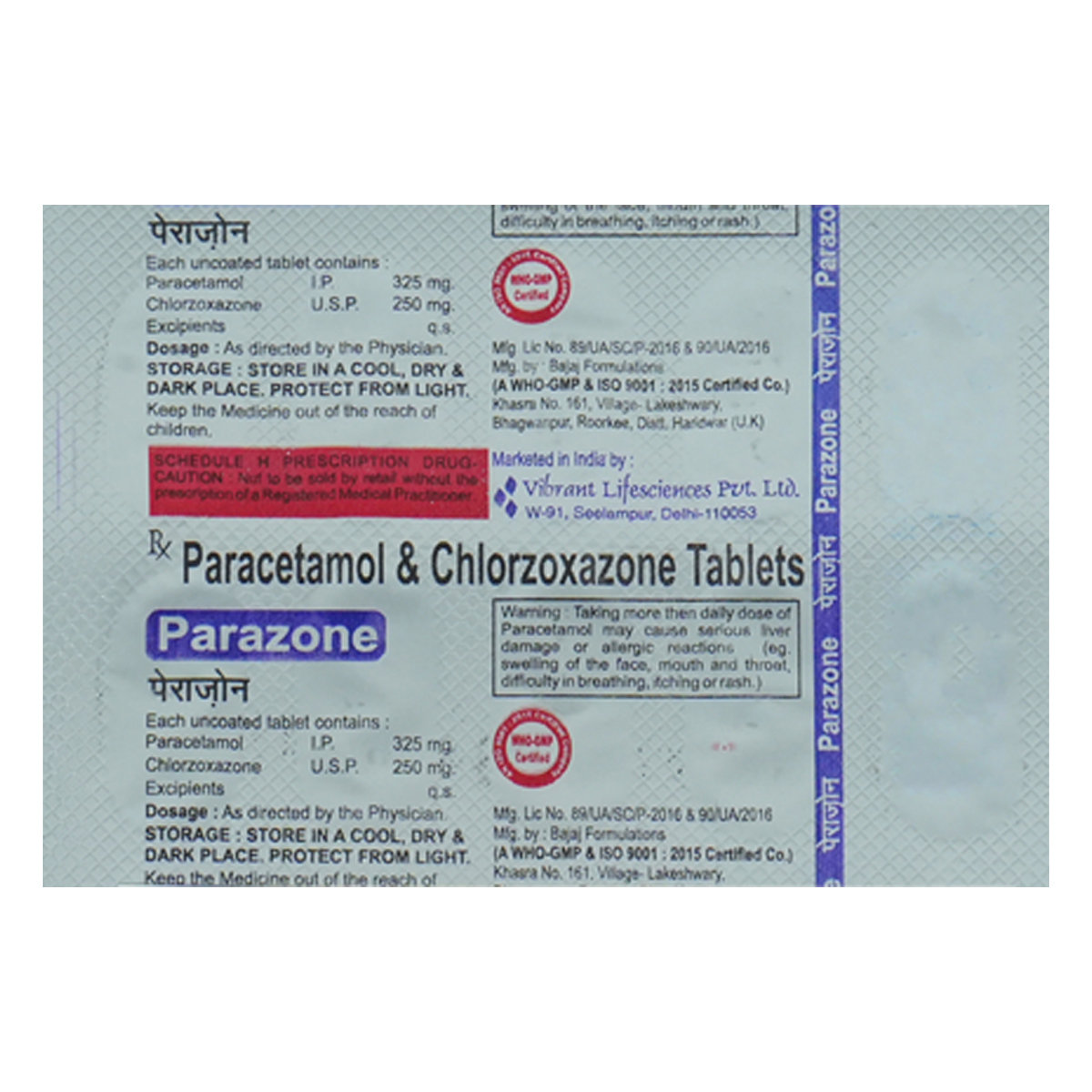
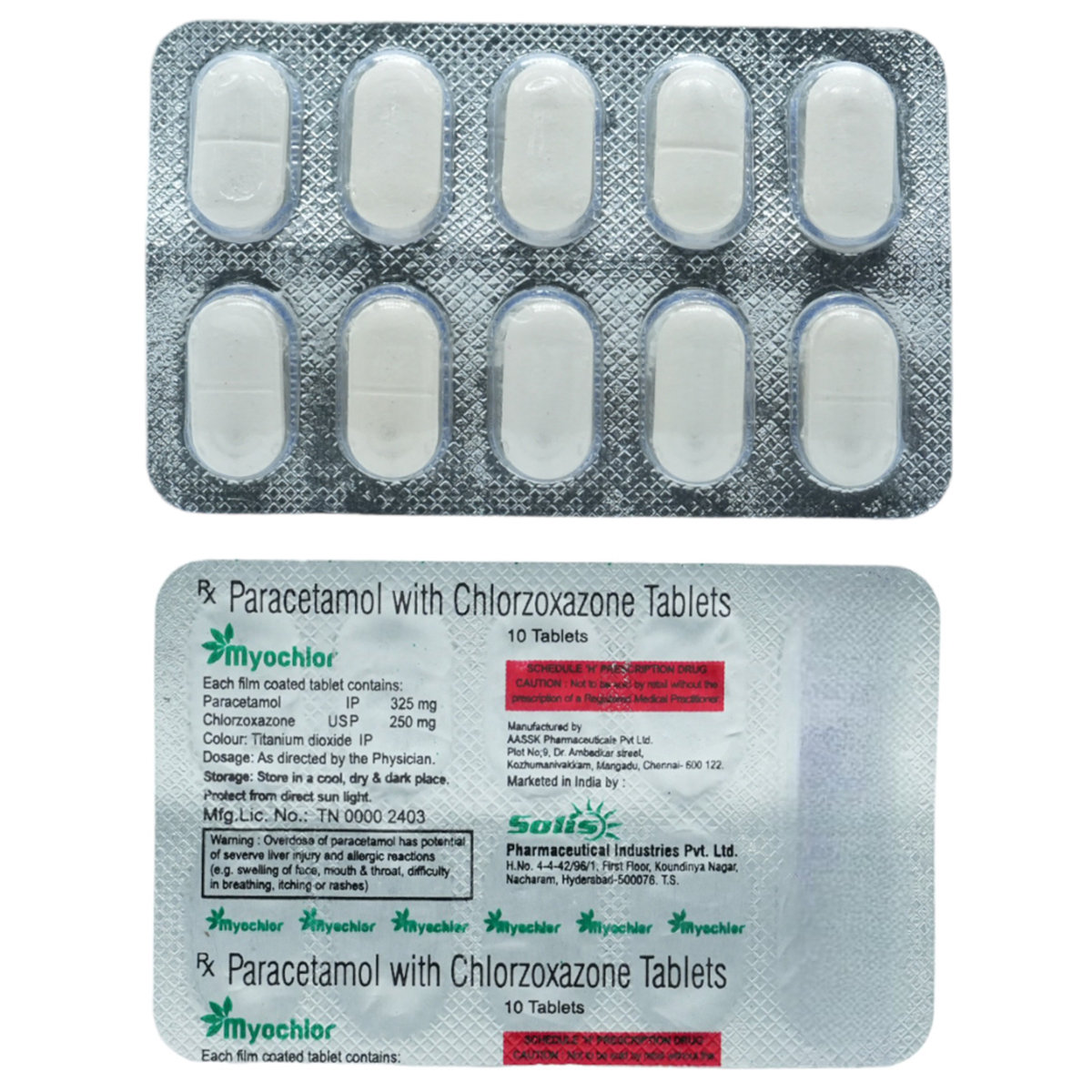
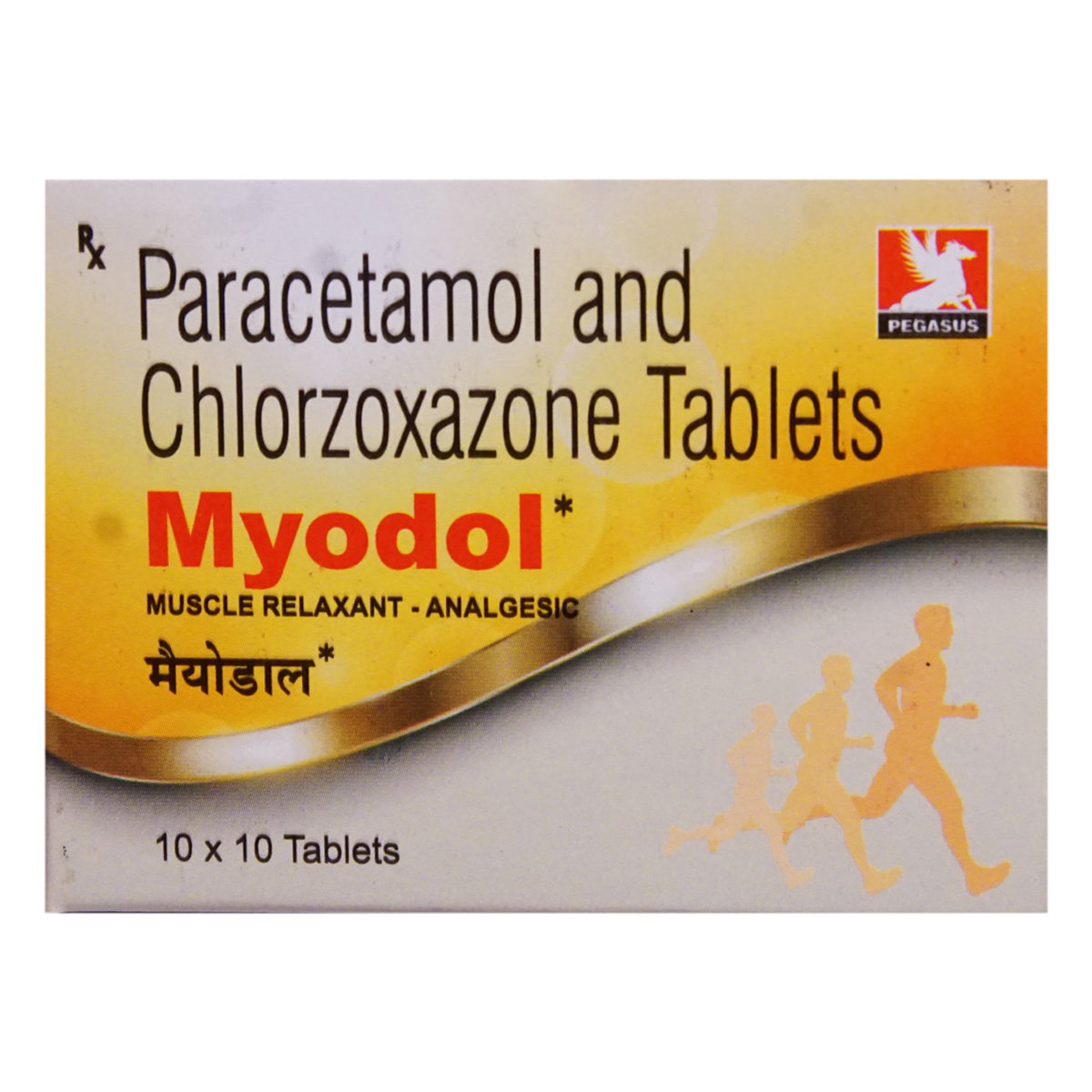
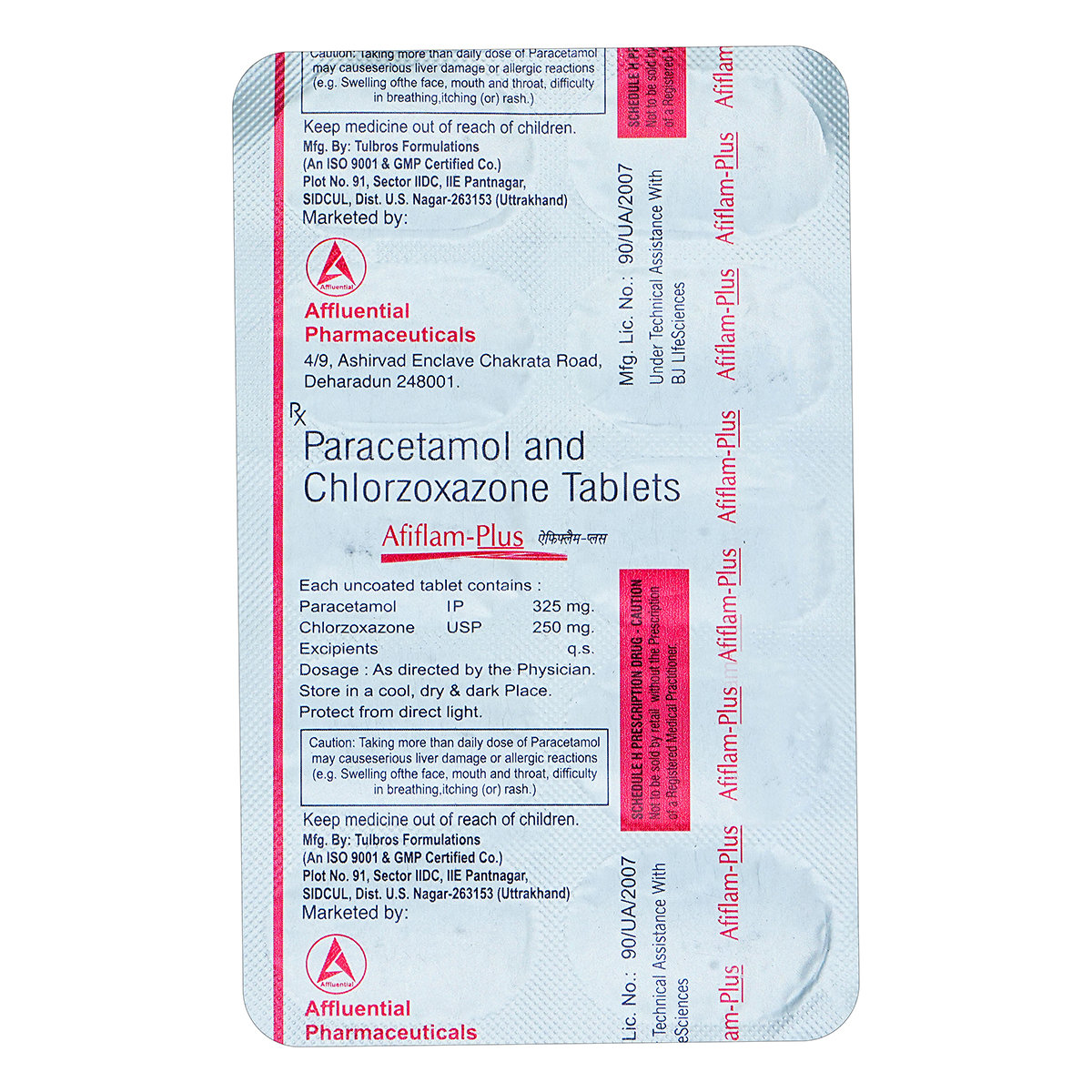
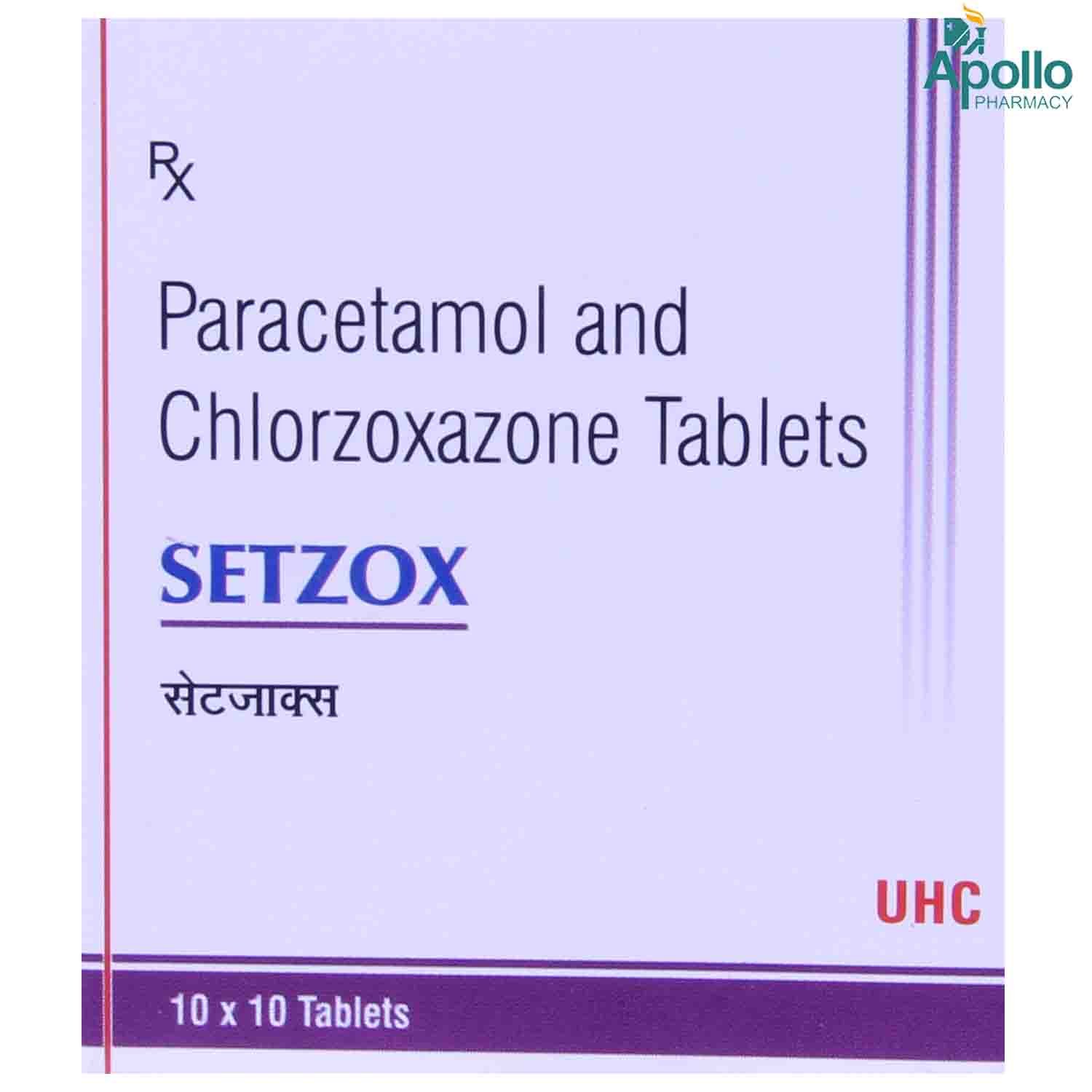
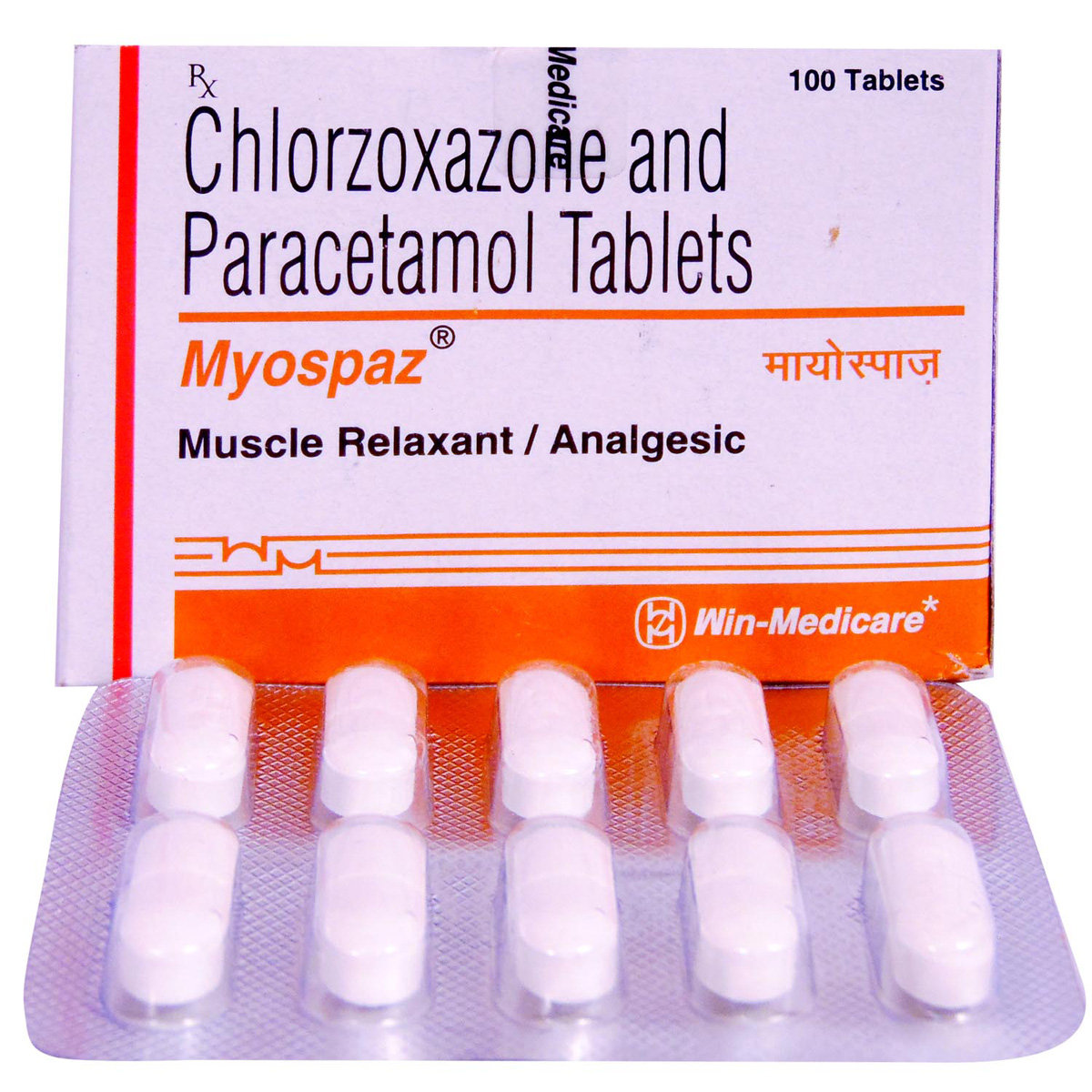

_0.jpg?tr=q-85)

